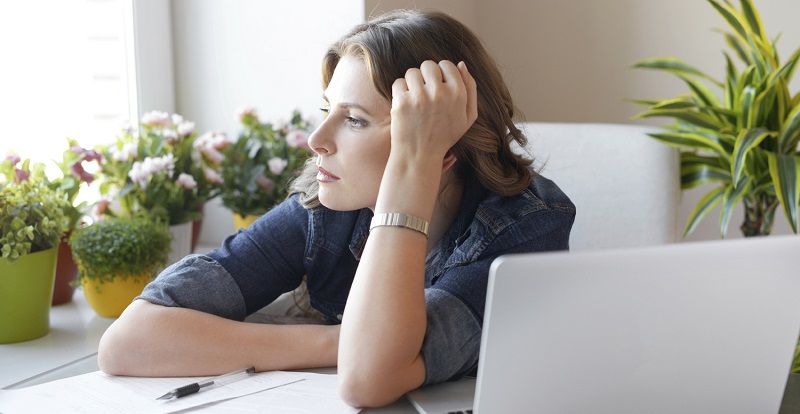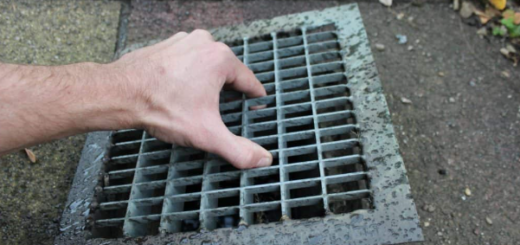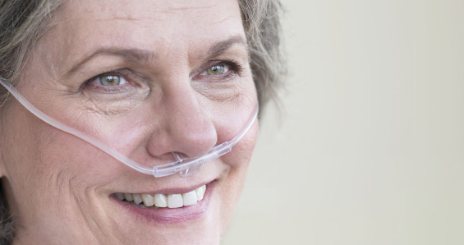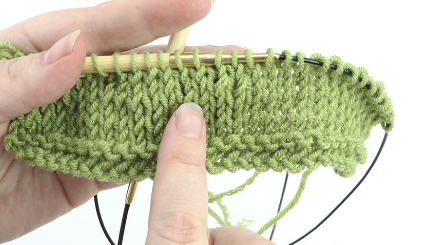How to combat anxiety with 10 practical strategies
Want to learn how to fight anxiety and eliminate it? The first step is to know. Anxiety is a state of diffuse concern. The person feels anxious waiting, as if something negative happen, which keeps it in a state of permanent alert and prevents you relax. However, it cannot explain why or why you feel that way. In many cases, the person is aware that this states of overactivation no sense, but is unable to control it.
What kinds of anxiety suffer?
Broadly speaking, one can speak of two types of anxiety: trait anxiety and state anxiety. Distinguish what kind of suffer anxiety is important because it will provide insight into the problem and take steps to eliminate it.
- The anxiety traitindicates a person from a very early stage of your life has felt anxious, perhaps from childhood or adolescence. These people often have a temperament that leads you to immediately react to the most varied situations, are easily excited and have trouble relaxing. In fact, as you had to fight anxiety for most of your life, you do not know how to live differently. For these people the anxiety has been a perennial traveling companion.
- Anxiety state, on the contrary, is triggered by a specific event. In response, a person who has never been particularly nervous responds with anxiety. At bottom, what happens is that the person does not have the psychological tools to cope with the problem, so that your body and mind respond with a status of “exceptional” activation.
Of course, both types of anxiety can coexist. An anxious person will notice that your anxiety level increases when you have to face certain environmental demands. Likewise, someone who has never been anxious can begin to respond eagerly to different situations, because it fails to take control of your emotional life.
The good news is that anxiety symptoms can be reversed, without recourse to anxiolytics. In fact, you should not forget that anxiety medications are not without side effects and are not a long term solution. On the contrary, there are different strategies that have been scientifically proven and are easy to apply that help fight anxiety naturally.
How to fight anxiety naturally?
-
Accepts anxiety, become an impartial observer
Anxiety is harmful, we know and we want to eliminate it. It is therefore natural that our first impulse is to deny and reject it. However, the paradox is that the more we try to combat anxiety, the more we will feel overwhelmed. When we deny an emotion or feeling, it grows.
In fact, the mind of an anxious person is not filled with concerns about facts of your daily lives but by the metapreocupaciones. That is, you care because you care. This person activates your inner critic, a voice that constantly says that anxiety is intolerable, that is unable to maintain control or that its existence is miserable.
Thus triggering a vicious cycle that only serves to increase anxiety. Therefore, do not try to deny the anxiety you experience, just be aware of its existence. When not run from an emotion or labels as “negative” you can take an emotional distance the problem and regain control of yourself.
-
Take your time, do not run
Most anxious people are constantly moving from one place to another, eat standing, not sitting at the table and perform different tasks simultaneously. Your computer, for example, is usually a chaos composed of different open windows and programs. And it is that what we express outwardly is a reflection of our mind.
However, when we take everyday tasks from this chaotic and hasty perspective, we are giving a negative feedback to the brain because it is as if we were saying that should work even faster because things are out of control. As a result, the brain responds by further increasing the levels of cortisol and adrenaline, which generate more anxiety.
The solution is to cut this vicious circle. Slow it down and, above all, give an order to the tasks you must perform throughout the day and prioritize the most important. Make yourself downshifting; you’ll see that manage to do more with less stress.
-
Do not let dos, applies the rule of 2 minutes
One of the things that increase our state of anxiety knows that we have pending tasks. In fact, are not the tasks themselves that wear us down and exhausted, but mentally constant reminder to them.
Personal productivity experts say that to solve this problem, it is best to apply the rule of the 2 minutes. In practice, when a job comes up, if it does not take longer than two minutes, do it immediately and to postpone it and remember it will consume more energy than carrying it out. If the task requires more time and not have it, ask you if it’s really important. If so, seek it a hole in your agenda.
Remember that how you organize your day will affect your mental state. Therefore, do not let the tasks accumulate because if you leave for the last time, just be contributing to increase your level of anxiety. Learning to organize your life you will eliminate a great anxiogenic source: dos and steal you energy without giving any reward in return.
-
Book a time of day for you, and do what pleases you
In the society in which we live, doing over being rewarded. Therefore, we feel compelled to run, will not have a minute of rest; because it is synonymous with laziness, it is the antithesis of the values promoted by Western culture.
In fact, it is not surprising that anxious people are always full of work and projects pending, you do not even have a few minutes a day to devote to yourself. Immersed in this state of constant tension, do not allow your brain “off” as a result, anxiety levels soar.
However, unwind and be alone with yourself is as important as being proactive. Although as anxious people often find it difficult to be idle, an excellent alternative is to spend at least an hour each day to an activity you really enjoy. In this way, the brain starts to release a series of neurotransmitters such as endorphins, which create a state of well being and relaxation.
-
Do not pay too much attention to your thoughts
The mind of an anxious person is their worst enemy. In fact, anxiety grows because of the unrealistic thoughts that the person develops. Therefore, it is essential that you learn to detect and stop its course.
The most usual is that the anxious person responds in an exaggerated manner in situations of everyday life. Ago a storm in a glass of water, think a simple error will have dire consequences. Thus, adds unnecessary tension.
Therefore, it is important to start to question yourself these catastrophic thoughts that do not conform to reality. Ask yourself: That concern is realistic? How likely are you true? What’s the worst that could happen? How could you handle it?
-
Focuses situations from another perspective
Anxiety is caused largely by the meaning we attach to certain situations. Therefore, one of the most effective strategies to combat anxiety is to change the way we think of stressors.
A study introduced them to some leaders of a video in which the idea that stress was enhancer as some people give your best when under pressure is transmitted. During the next two weeks these people not only improved their job performance but reported fewer psychological problems and your levels of cortisol, a stress hormone, decreased. In the group still he believed that stress is negative these changes were not appreciated.
For example, a presentation in public is stressful and creates anxiety but on the other hand, it is also an opportunity to test our skills and expand our network of professional contacts. In this regard, it will be helpful to use more often the “however”. When you discover these irrational thoughts, try to give them back using this term. For example, if while studying think, “I will not pass this test.” Restructuring that thought positively, “may not approve the review; however, I will strive to give the best of me.”
-
Learn to live in the “here and now”
The anxious person usually lives somewhere between the past and the future. He blames himself for what happened and worry or frightened by what might happen. Thus fills his present anxiety. In fact, anxiety often arises precisely from those concerns about the future. The anxious person suffers a kind of obsession with the future that makes you focus on all the disasters that could occur.
However, to combat anxiety, it is important to learn to focus on the present. Breathe, look around and notice that nothing bad is happening now. Enjoy it. The practice of mindfulness can help you achieve this goal. It is not even necessary to meditate, you just have to learn to focus on the here and now, you are living the experience, uncritically and without letting your minds wander to the future.
As you probably find it difficult to abandon once and concerns, you can set what is known in psychology: “Concerns period”. It is these thoughts to postpone those arriving 30 minutes a day in which you’ll permission to worry all you want. But once you have passed if you come to your mind other anxiety-inducing thoughts, you should postpone until the next session.
-
Be careful when you vent emotions or dominate
For many decades, you encouraged people to repress your feelings and emotions. Later, you were told that it was better expressed as thus could relieve states such as anger and anxiety. However, it has now been shown to help ventilate emotions not necessarily to handle, or diminish its intensity.
Psychologists asked to people who write an essay and then became very negative ratings on this, with the aim of generating anger. Some people were given the opportunity to vent your aggression with a pair of gloves, hitting a punching bag with a photo of the evaluator. Others had to wait sitting in a quiet room. In the end, your level of frustration and anger was evaluated. Interestingly, those who had “vented” your emotions were more aggressive.
This does not mean you should suppress emotions, but must find appropriate ways to express yourself. Punching a pillow, scream or download your verbal anger against someone can increase negative feelings. This is because there are some activities that activate your nervous system, instead of calm, which is what you need. Therefore, to combat anxiety, it is best to opt for activities that allow you to truly relax.
-
Practice some physical exercise
One of the best strategies to combat anxiety and stress is physical exercise. It is not necessary that you spend much time, just half an hour every day will suffice. Although it is advisable that are intense exercises, which are those that allow a lot of endorphins are released.
In fact, a study found that regular physical activity causes the brain to better withstand the ravages of stress because functionally restructuring occurs. In practice the sport stops the activity of neurons in the ventral hippocampus, which are primarily responsible for activating areas of the brain associated with stress response and anxiety.
Therefore, it is desirable that at least five times a week spend time to exercise. Not only you notice an improvement psychologically but also your physical health will thank you.
-
Learn to relax and breathe
Relaxation techniques are very effective for anxiety. There are several techniques, one of the most common is to tighten each of the muscle groups, and then gently relax. In fact, if you suffer from anxiety, you probably have a big strain on the body, especially in the area of the back and forehead.
There are also visualization techniques that provide excellent results for those with a fertile imagination. One of the simplest is to close your eyes and imagine you are in a quiet place that you like and where you feel comfortable. Imagine all with as much detail and then just lose yourself seize by the positive feelings you’re experiencing.
These techniques should be accompanied with a good breath. In fact, although we are not aware of it, breathing is a very important process through which the mind gets feedback from our state. When we breathe fast and superficially, our brain understands that something is wrong and that we can be in danger, thereby increasing the level of anxiety. When we breathe deeply and slowly, all body functions, including heart rate, punctuate and is easier to relax.














